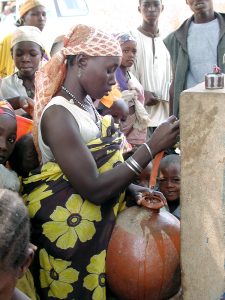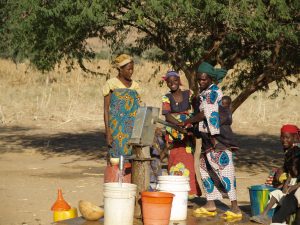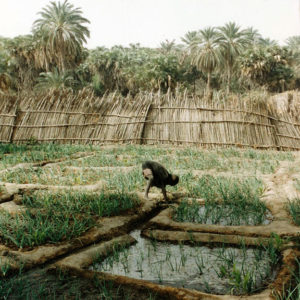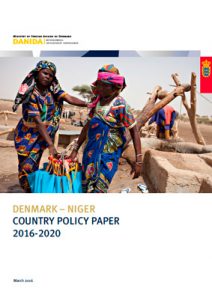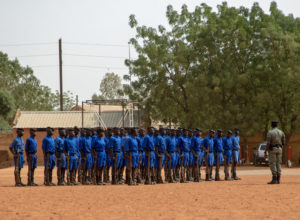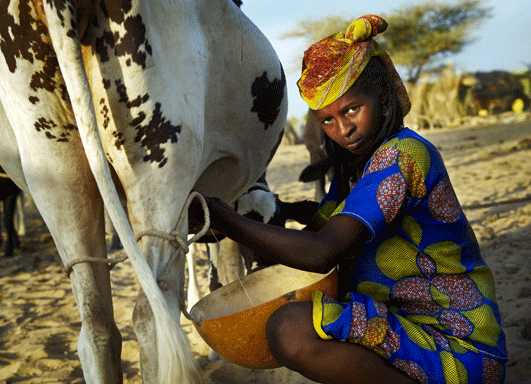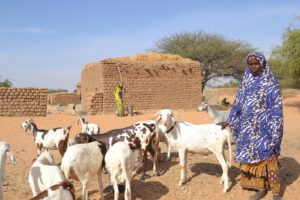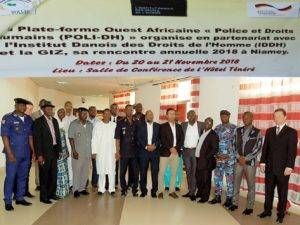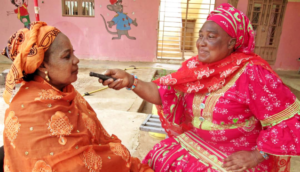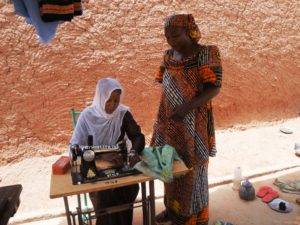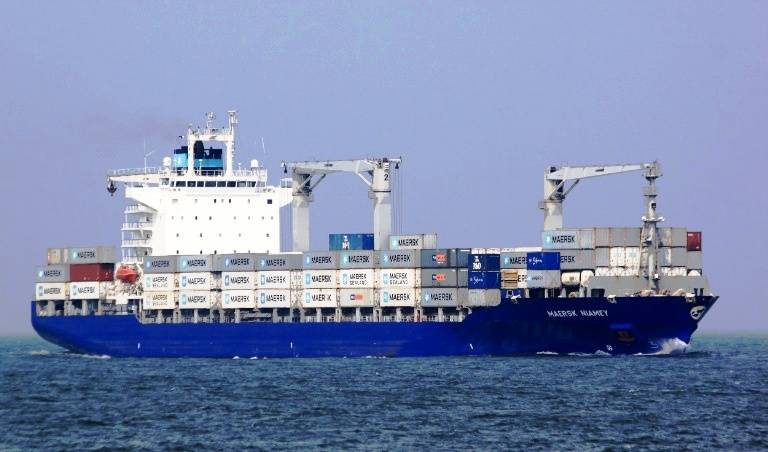The beginning of Danish cooperation in Niger (1974 – 1994)
Cooperation between Denmark and Niger began in 1975 following the 1973 drought. The first projects focused on improving water access in drought-affected rural areas and some secondary centres. The cooperation has developed gradually and has become more and more concentrated in the regions of Zinder and Diffa. The average volume of cooperation at the end of this period is around DKK 30-40 million.
The first projects were financed by interest-free Danish loans, later were converted into grants.
Danish cooperation in Niger between 1994 and 1999
The volume of Danish cooperation has gradually decreased after 1994. The reasons for this slowdown are numerous but was primarily due to the lack of sectoral strategies within the two selected sectors: water and natural resource protection. During this period Niger faced difficulties in relation to the democratization process coupled with financial problems.
Following the military coup of January 1996, Denmark froze its cooperation with Niger, which in practice resulted in further postponement of the elaboration of sectoral cooperation strategies. Nevertheless, Denmark maintained its representation in Niamey and activities through NGOs and decentralized administrative structures while maintaining a dialogue with all partners in Niger.
Danish cooperation in Niger between 2000 and 2015
Following the presidential and parliamentary elections at the end of 1999, Niger returned to political stability and democracy. However, in connection with the updating of the Danish cooperation strategy at the beginning of 2000, the question of the choice of Niger as a country of sectoral cooperation was raised. As a result of the subsequent political discussions in Denmark and with the Government of Niger, Denmark decided to maintain its cooperation with Niger, but no longer as a country of sectoral cooperation. The Danish cooperation continues in three main areas: water supply, natural resources and support for civil society. From 2005, the cooperation with Niger has been strengthened further totalling an annual budget of 70,000,000 DKK.
In 2014, the Danish Government decided to reorganise the diplomatic representation abroad and among the adjustments, it was decided to close the Danish cooperation office in Niamey and responsibility for the Danish development cooperation to Niger now rests with the Danish embassy in Ouagadougou.
Danish cooperation in Niger from 2016
Despite the closing the Danish cooperation office in Niamey, a new Country Policy Paper (March 2016) has been elaborated to cover the period 2017-2020. After some adjustments, the present Danish Country Programme for Niger covers the period 2017-2022 with a financial envelope of about 43 billion CFA Francs. The country program currently under implementation is divided into three sector programmes:
- The Water and Sanitation sector programme is designed to support the implementation of the Government of Niger’s strategic sector program for water, hygiene and sanitation (PROSEHA 2016-2030) with focus on rural areas and on disadvantaged areas. The budget is about 17 billion CFA francs.
- The Economic growth in agriculture programme promotes improved private sector led sustainable economic growth and job creation, based on agricultural value chains. The budget is about 10.5 billion CFA francs.
- The Democratic Governance, Stability and Management of Migration sector programme has a budget of about 16 billion CFA francs
The current framework Agreement for the Cooperation between the Republic of Niger and the Kingdom of Denmark has been signed in July 2018 and is managed by annual intergovernmental consultations. The last annual intergovernmental consultations were held in Niamey on September 13th, 2018.

